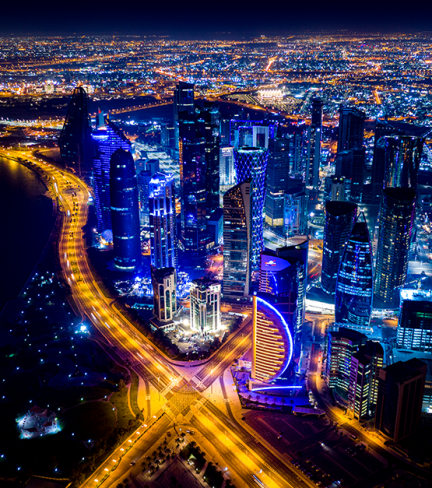Tourism
Tourism is a key pillar of Qatar’s economy and continues to create a positive impact that contributes to the Qatar National Vision 2030. The State of Qatar’s leadership has identified tourism as one of five priority sectors integral to diversifying Qatar’s economy, while increasing private sector participation.
Qatar offers an enriching tourism experience by blending its authentic culture with modernity. The country has established itself as a premier, must-visit global tourist destination, providing safe and accessible tourism to all.
Qatar National Tourism Sector Strategy 2030
On World Tourism Day 2017, HE Sheikh Abdullah bin Nasser bin Khalifa Al Thani, the former Prime Minister and Minister of Interior, launched the Next Chapter of the Qatar National Tourism Sector Strategy, a five-year plan that places an enhanced end-to-end visitor experience at the heart of tourism development.
In 2021, Qatar Tourism (QT) was established through Amiri Decree No. 15, replacing the Qatar National Tourism Council. QT oversees the tourism sector’s development, collaborating with both public and private entities to enhance the tourism landscape.
Qatar Tourism aims to attract six million visitors by 2030. The Tourism Strategy 2030 is built on 11 pillars, guiding QT’s efforts to boost tourism and support the sector’s advancement.
In January 2024, the third phase of the Qatar Development Strategy 2024 – 2030 was announced, identifying tourism as a major sector within the economic diversification clusters entrusted with contributing to achieving sustainable economic growth.
The Third National Development Strategy 2023-2030 was announced today during a press conference led by HE Ibrahim bin Ali Al Hassan Al Mohannadi, Minister of Justice and Minister of State for Cabinet Affairs. pic.twitter.com/bwZyq3Jie1
— مكتب الاتصال الحكومي (@GCOQatar) January 10, 2024
The Next Chapter’s targets are being achieved by:
- Focusing on 15 priority markets, which include the GCC and segmenting markets by point-to-point travel and stopover travel.
- Expanding the reach of international representative offices; we currently have 13 worldwide.
- Launching regional and international marketing campaigns.
- Curating a robust calendar of world-class events year-round.
- Strengthening the Meetings, Incentives, Conferences and Exhibitions (MICE) sector by leveraging the country’s modern infrastructure.
- Relaunching the Hayya platform to give travellers a go-to way to apply for a business visa.
- Developing the hospitality sector by establishing new leisure destinations and districts, launching luxury shopping centres and investing in Qatar’s natural assets.
- Enhancing the visitor experience by improving access to, and quality of, tourism assets while working on regulations for adventure and leisure activities, hotel classification, and food and beverage sectors to ensure safety and excellence in service.
- Launching training programmes and collaborations to enhance the tourism sector to upscale the tourism workforce in Qatar.
- Streamlining regulation processes to encourage investment.
In December 2022, the Arab Ministerial Council for Tourism named Doha the Arab Tourism Capital for 2023. During the official ceremony, Qatar Tourism received the Arab Tourism Capital’s key from the Arab Tourism Organization, in recognition of the country’s efforts in growing this sector.
In 2023, during the 12th Conference of Ministers of Culture in the Islamic World, Lusail City was officially named the 2030 Capital of Culture of the Islamic world.
The State of #Qatar is proud of its architecturally remarkable cities, including #Lusail City, which was selected as the Capital of Islamic Culture 2030. pic.twitter.com/XzSZZiyzOU
— مكتب الاتصال الحكومي (@GCOQatar) September 28, 2023
His Excellency Mr Saad Bin Ali Al Kharji, Chairman of Qatar Tourism, chaired the 7th Arab Ministerial Council for Tourism in December 2023, in Doha.
In February 2024, HE Mr Saad Bin Ali Al Kharji, Chairman of Qatar Tourism, chaired the 8th Meeting of the GCC Tourism Ministers, held in Doha, which endorsed a unified Tourist Visa was discussed.
Investing in Qatar’s tourism sector
Qatar’s Third National Development Strategy 2024 – 2030 (NDS3) serves as a roadmap with ambitious targets to guide the nation towards realising the Qatar National Vision 2030 (QNV 2030).
By focusing on diversifying crucial economic sectors, fostering a favourable environment for businesses and increasing private sector involvement, Qatar remains committed to drawing in foreign investments.
NDS3 centres on ‘Growth Clusters,’ which promote sustainable economic growth in manufacturing, logistics and tourism, which are considered key sectors for Qatar’s non-oil economy. The tourism cluster aims to boost business tourism and capitalise on Qatar’s distinct features to attract families, positioning the country as a top tourism destination.
Investors that set up companies in Qatar benefit from a competitive edge, earning a spot among the first to start up in a fast-growing market.
Reasons investors are attracted to Qatar’s tourism sector:
- Stable investment environment.
- Investment Promotions Unit at the Qatar Tourism to facilitate connections and procedures.
- Investment opportunities in Qatar Tourism Asset Masterplan.
- New e-licensing system to fast-track the process for tourism businesses.
- New incentives and forms of facilitation for foreign business-owners.
Visitors’ experience
Ease of access
Qatar has the most open visa policies in the region and ranks 8th globally as per the UN World Tourism Organization’s (UNWTO) Barometer in August 2018.
This high standing reflects Qatar’s visa facilitation measures, which include free-of-charge and visa-free entry to nationals from 102 countries.
Landmarks
Katara Cultural Village
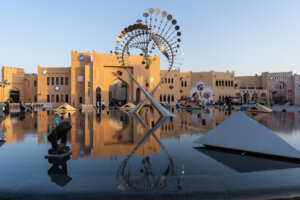
Open since 2010, Katara showcases innovative interpretations of the region’s architectural heritage. The vast cultural village is home to theatres, galleries and performance venues that regularly stage shows and exhibitions.
National Museum of Qatar
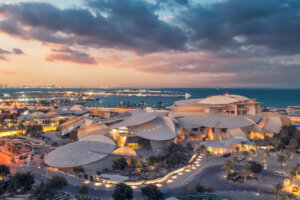
The National Museum of Qatar offers visitors an interactive exploration of Qatar’s culture and history. Opened in 2018, its architecture symbolises Qatar’s desert landscape and mimics the Desert Rose. The museum’s exhibits are segmented into three chapters: ‘Beginnings’, ‘Life in Qatar’ and ‘Building the Nation’ – presented across 11 multi-sensory galleries. In addition, the museum is home to heritage research centres and conservation laboratories, offering visitors a multi-faceted experience.
Museum of Islamic Art
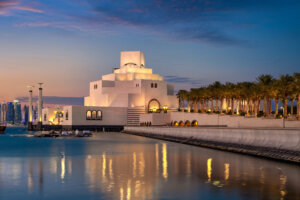
Since 2008, the Museum of Islamic Art has treated visitors to a unique journey, showcasing a display of the finest arts and artefacts from the Islamic world, across 14 centuries. The museum also hosts several cultural activities, including film screenings and calligraphy classes all-year round. In its outdoor space, visitors enjoy the tranquil park and weekend bazars.
3-2-1 Qatar Olympic and Sports Museum
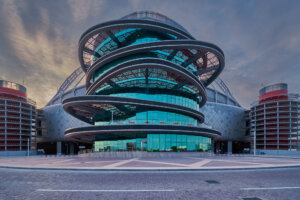
The 3-2-1 Qatar Olympic and Sports Museum is one of Qatar’s most innovative museums, hosting many sports collectibles that have left their mark on the history of sports and the Olympics. The museum hosts interactive exhibits and purpose-built activity areas. It also facilities academic research in global sports, being a member of the Olympic Museum Network.
For more information about museums in Qatar, click here.
Souq Waqif
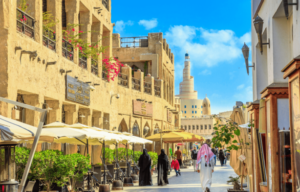
Founded over a century ago, Souq Waqif offers visitors an authentic experience of the traditional marketplace, architecture and culture. In 2008, the Souq went through a restoration period to preserve its architectural style and protect its diverse stores. With artwork, retail, spice markets, pearl markets and restaurants, Souq Waqif offers utmost hospitality and cultural entertainment.
Al Wakrah Old Souq
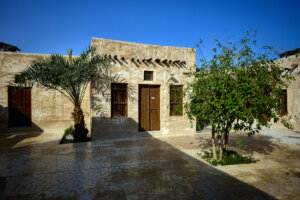
Located in a city with the same name, Al Wakrah Old Souq is a cultural, dining and shopping destination reminiscent of a traditional village. The Souq was built on the site of the over 200-year-old ancient city of Al Wakrah, overlooking the Arabian Gulf, making it the only historical market in Qatar with a view of the seashore.
Al Shaqab
As a global equine leader, the Al Shaqab Equestrian Centre houses the rarest breeds of purebred Arabian horses in world-class facilities, including indoor and outdoor arenas.
In 2004, Al Shaqab joined the Qatar Foundation for Education, Science and Community Development, providing opportunities for the Qatari community to participate in a wide variety of cultural and equestrian activities.
Msheireb Downtown Doha
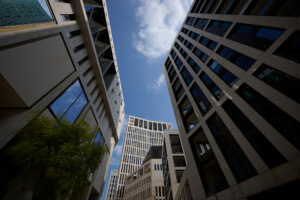
As one of Qatar’s pioneering projects, Msheireb Downtown Doha is the world’s first fully-built smart and sustainable city district. Though a modern city, the architecture of Msheireb reflects the country’s rich heritage. Located in the heart of Doha, it makes a perfect location for retail, commercial, residential and civic services.
Lusail
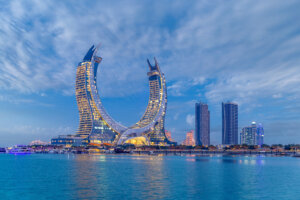
Dubbed Qatar’s Future City, Lusail is one of the country’s most advanced locations, blending history with modernity. Built according to the highest international standards, Lusail City features numerous modern landmarks, residential buildings, outdoor spaces, a boulevard and a promenade. It also hosts various local and international events. In addition, Lusail is home to the iconic Lusail Stadium, renowned for hosting the final match of the FIFA World Cup Qatar 2022™ and AFC Asian Cup Qatar 2023™.
Al Zubarah Fort
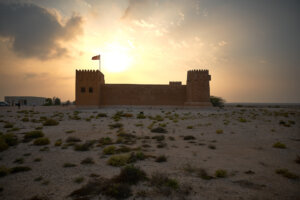
Originally built in 1938, Al Zubarah Fort earned its spot as a UNESCO-recognised heritage site since 2013. It consists of three main parts, the largest of which is the archaeological remains of the town, dating back to the 1760s. The Fort has a museum that displays artefacts from the country’s historic pearl diving.
Zekreet Fort
Believed to have been built between 1809 and 1812, Zekreet Fort is one of Qatar’s most ancient locations and the only fort in the western region of Qatar. The nearby Zekreet Mosque dates back to the beginning of the twentieth century.
Jassasiya Petroglyph Site
Discovered in 1957, the Jassasiya is an archaeological site with a series of low limestone outcrops, located about 60km north of Doha. The heritage site features 874 carvings of different elements from Qatar’s history, including dhows, fish and ostriches, to name a few.
Ras Abrouq
In the west of Doha lies a desert haven, known as Ras Abrouq, where natural landscapes come together with top-tier hotels and dining options. Ras Abrouq Beach showcases natural scenery, with limestone formations such as cliffs, pillars and rocks creating a stunning landscape.
For more information about archaeological sites in Qatar, click here.



